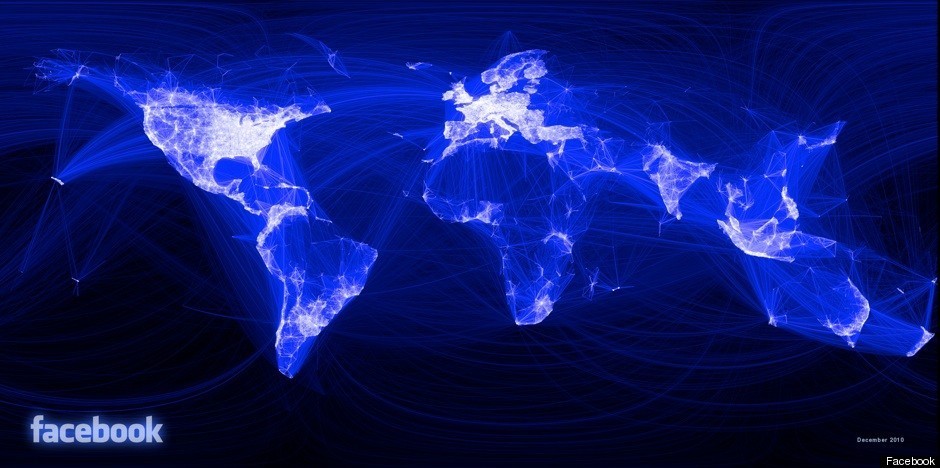A person’s respect for Klout is directly proportional to their Klout Score.
Tag: influence
The big myth of social networking
A little while ago, someone tweeted his awe of the fact that over 600 million people are connected to each other on the one platform: Facebook.
This got me thinking, are all these people really “connected”…?
I’m sure you’re familiar with the Six Degrees of Separation principle. It holds that on average, anyone is only 6 personal relationships away from anyone else. Whether Facebook adds anything to the equation is questionable.
Take Madonna for example.
Madonna has a Facebook page – well, I think it’s her. There’s a problem already. For the sake of this argument, let’s accept it’s her.
I can write a message on her wall and hope she replies, but that’s not really the point. I could also mail her a letter or press the buzzer at her Hollywood mansion.
The point is connectedness. For the theory to hold up, I must be only 6 Facebook users away from the Material Girl, and thereby be able to engineer a personal introduction.
Maybe in theory I can, but while I know who I’m connected to, I don’t really know who they’re connected to, let alone who they are connected to. And that’s only a few degrees in.
Sure, I could ask “Does anyone know anyone who knows anyone who knows anyone who knows anyone who knows Madonna?”, but that would be a tad silly. No one could possibly know.
Alternatively, I could say “I’m trying to meet Madonna – can you arrange an introduction? Pass it on…”
Again in theory, my message would reach someone who could indeed arrange an introduction, but the probability of that happening is ridiculously low. Human nature dictates that a rapidly diminishing number of people will pass it on, let alone to the extent required to get a hit.
So while 600 million people are technologically connected on Facebook, practically they aren’t because everyone’s effective network only stretches so far.
The best we can do is stretch it as far as possible.
LATI: A better way to measure influence on Twitter?
I’ve never been comfortable with attributing digital influence to the number of followers someone has on Twitter.
To me, it’s more a measure of your longevity on the platform. The longer you have been on Twitter, the more followers you will have collected over the years.
Sure, the quality of your tweets and other variables will have an effect, but simply comparing the raw number of followers among tweeps is not really comparing apples with apples.
I was ruminating over this when it dawned on me: why not divide the number of followers by the number of years the person has been on the platform? That will remove the variance due to longevity from the equation.
For example, I currently have 831 followers and my Twitter age is 2.1 years, so my Longevity Adjusted Twitter Influence (LATI) is:
831 / 2.1 = 396
According to convention wisdom, someone who has 1500 followers is much more influential than I am. In absolute terms that may be true, but if their Twitter age is 4 years, their LATI is 375 – which suggests I am relatively more influential than they are. That means I’m on track to becoming more influential overall.
Compare that to someone who joins Twitter and attracts 200 followers in 3 months. That’s a LATI of 800 which blows both of us out of the water.
In the short term I imagine a typical person’s LATI would follow an s‑curve, whereby they take a while to attract followers in the beginning, then they ramp up as word spreads, then they plateau out again as their target demographic is exhausted. Over time, their LATI will decline as the years rack up without significantly more followers.
In contrast, truly influential people will continue to attract followers into infinity, so their LATI will remain high.
Now I’m no mathematician, so my logic may be all screwed up. But to me it’s more meaningful because it levels out the playing field.
Of course, the metric doesn’t recognise who is following you. Someone with 10,000 followers won’t be very influential if those people have neither the means nor the inclination to act upon their pearls of wisdom.
Conversely, someone with only 3 followers will be incredibly influential if those people happen to be the President of the United States, Rupert Murdoch and the Head of the European Central Bank.
So notwithstanding complicated and opaque measures like Klout, LATI provides an open and convenient snapshot of digital influence. At the very least it’s fun to toy around with.


